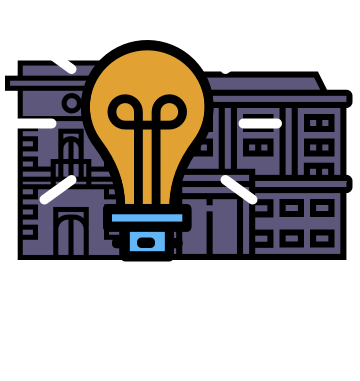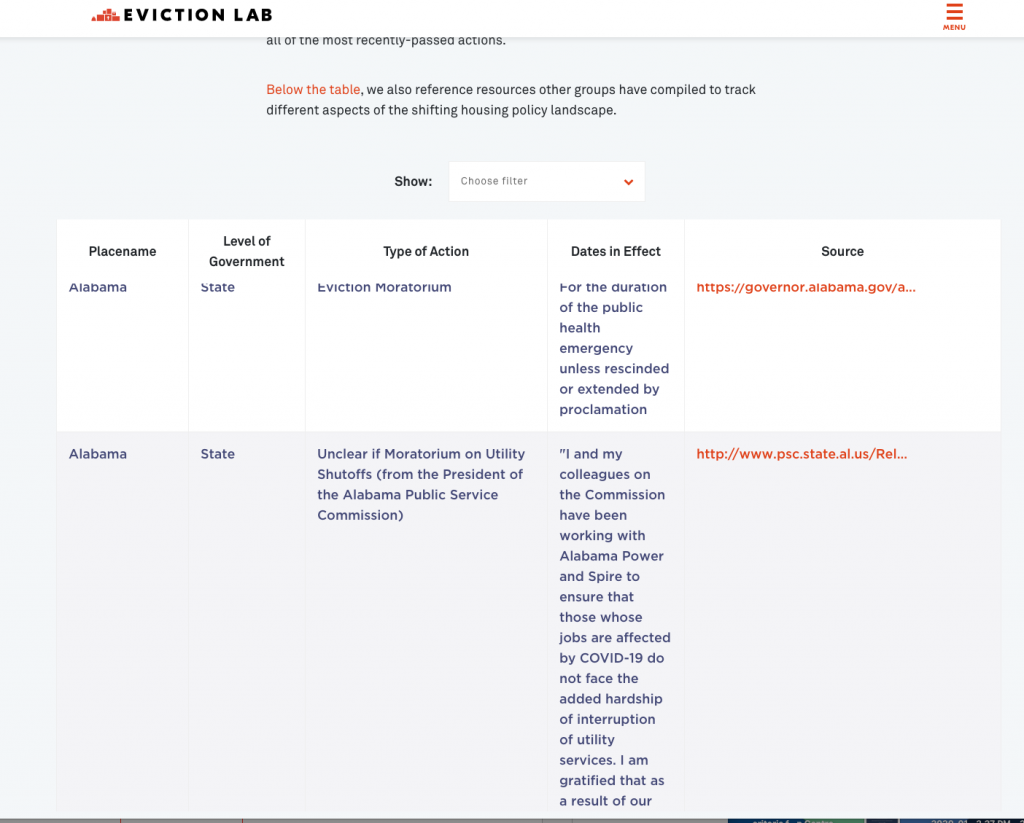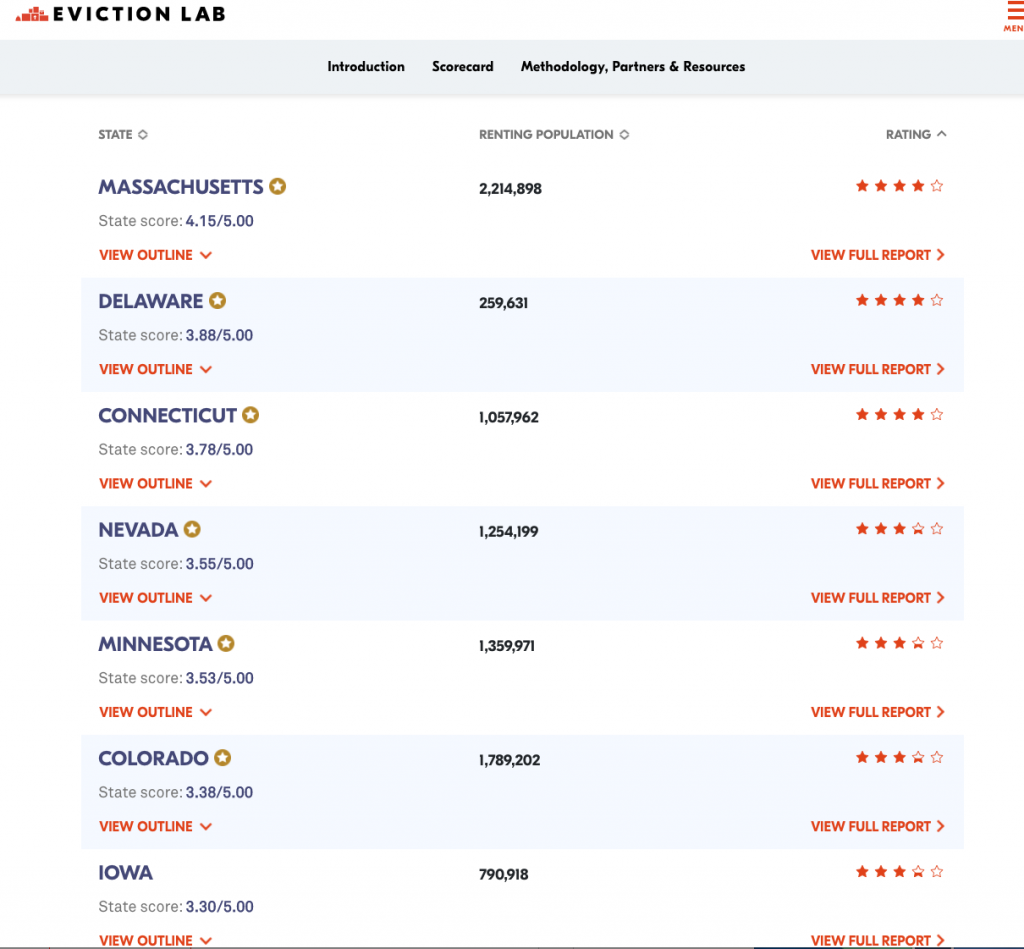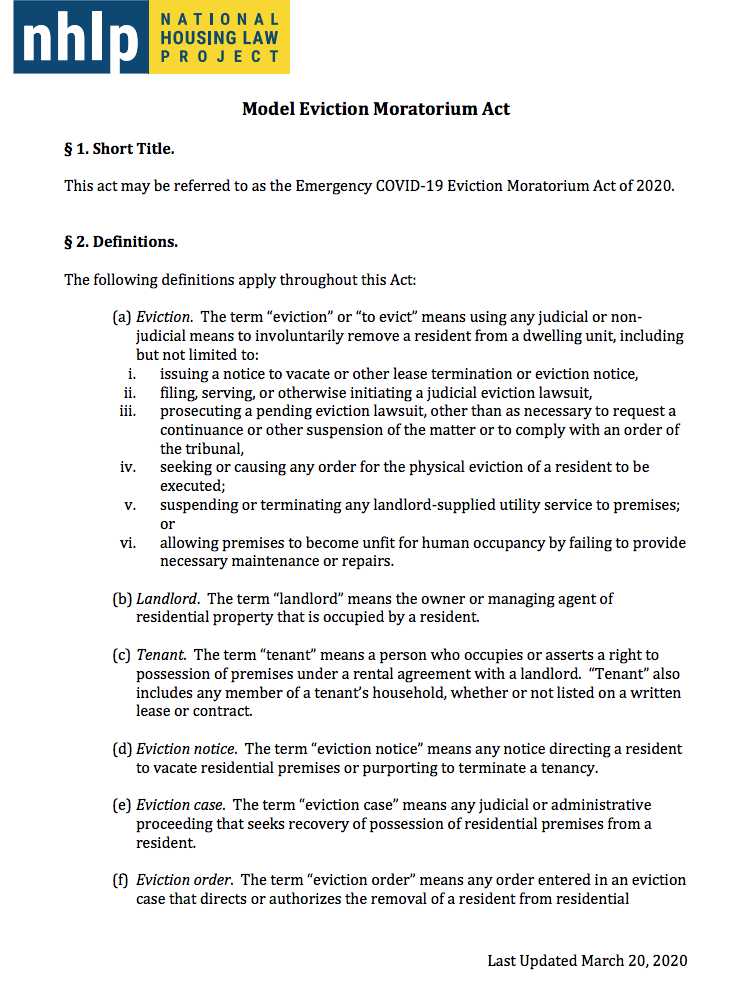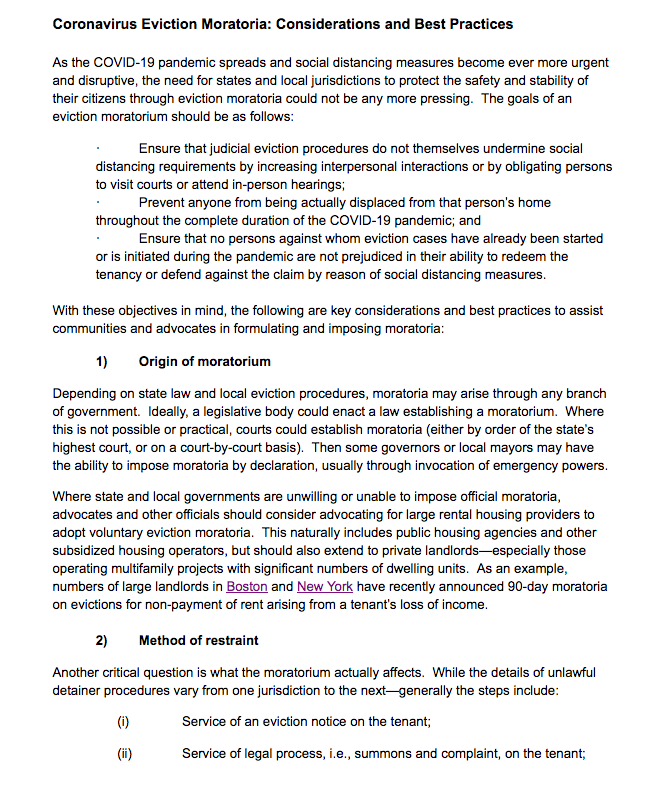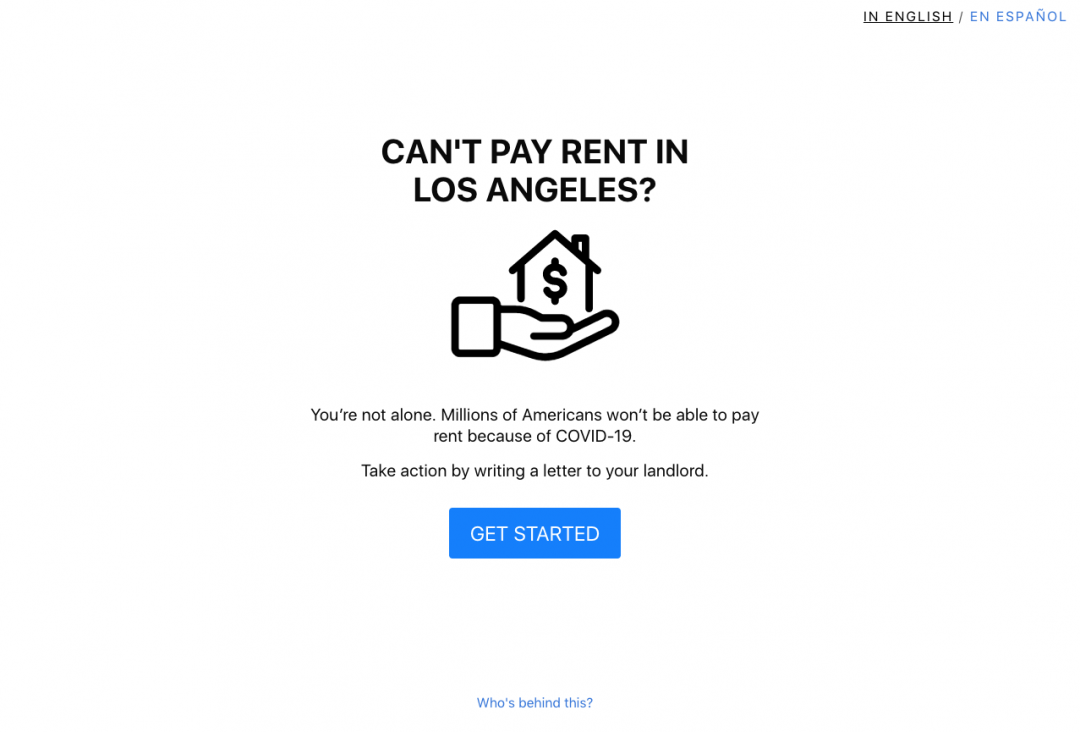Basic Information
During the COVID-19 emergency, the federal government (under the CARES Act) and many local city and county governments have instituted eviction moratorium policies.
These policies range in terms of what protections they actually give to tenants potentially facing eviction for non-payment of rent (or other situations) — but generally provide either a freeze on all court cases, a new defense to tenants who are sued for non-payment of rent during the emergency period, or an outright ban on landlords removing tenants from their home.
Moratorium policy trackers
There are many trackers that collect and compare the various versions of moratorium policies.
Regional Housing Legal Services has a national map that presents the details of each state’s COVID-19 emergency protections. The map was made through a collaboration of RHLS, Columbia Law School, University of Pennsylvania Law School, National Housing Law Project, and Columbia University Mailman School of Public Health. It divides the eviction process into 5 stages, and explains which states have created policies that cover all 5 of these stages, or a more limited set of protections.
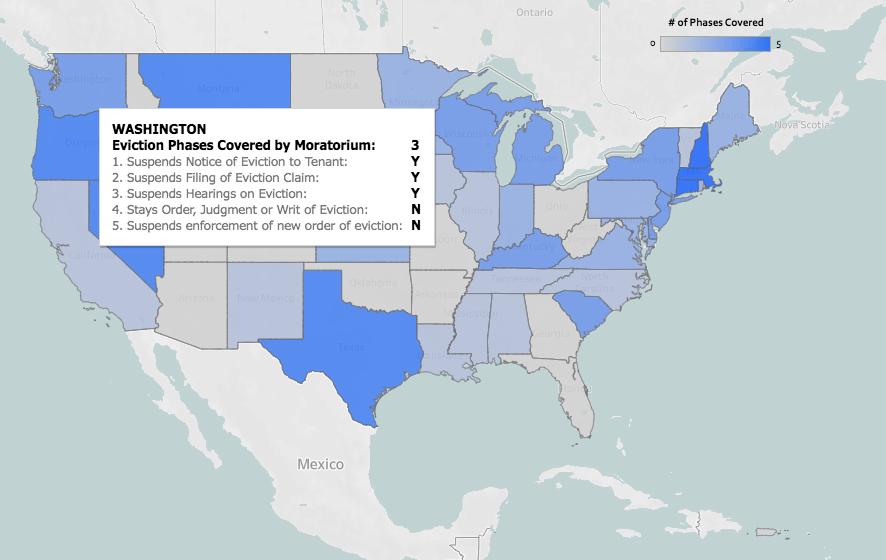
Princeton’s Eviction Lab has both a table listing all eviction and renter protection policies, and a scorecard ranking states on their COVID-19 housing policies.
Model Moratorium Policies and Best Practices
The National Housing Law Project also has standards and best practices to guide policy-making around emergency eviction protections. It released a Model Eviction Moratorium Act in March 2020, that could be a template for local governments. It also has a list of considerations and best practices for an effective eviction moratorium.
